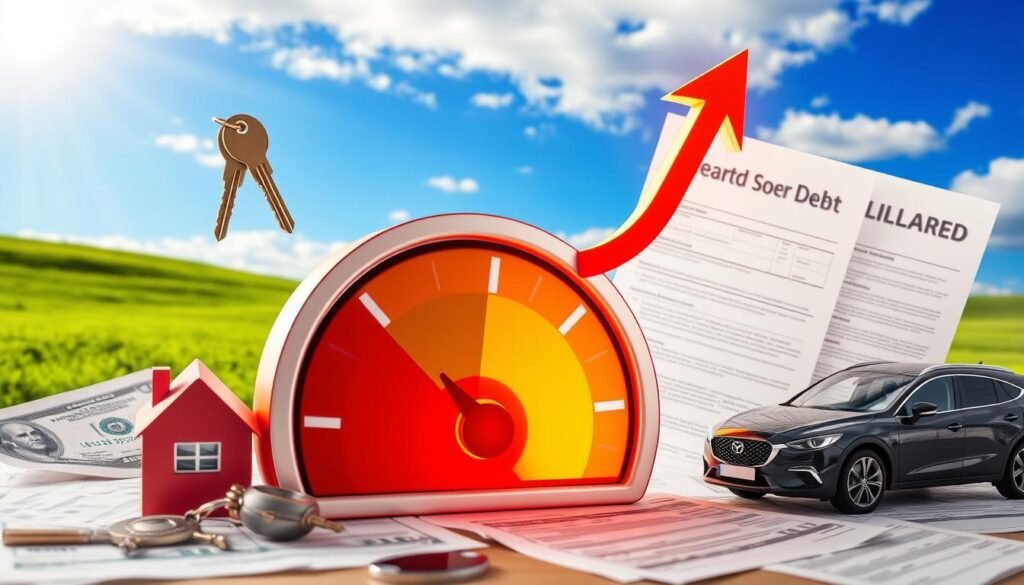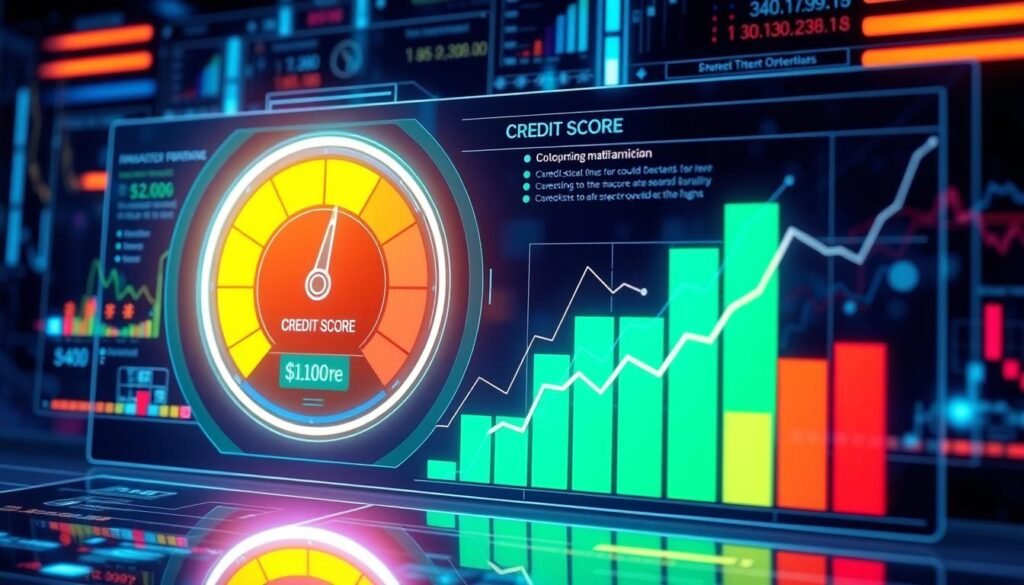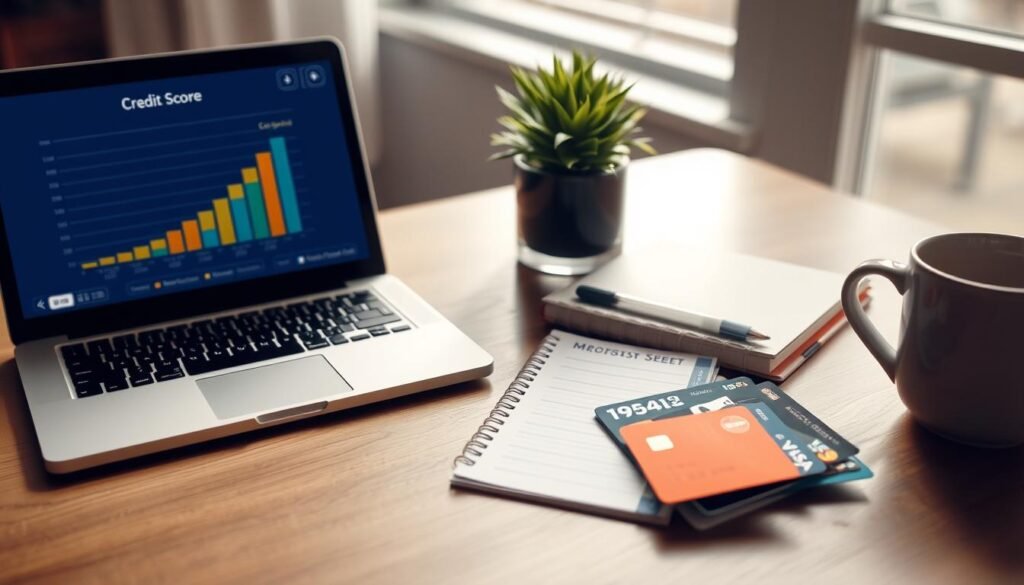This post may contain affiliate links, which means I may earn a commission if you purchase through these links at no extra cost to you
I remember the moment I finally paid off all my debt—it felt like such a major win. But I quickly realized that what I did next mattered just as much. At first, I noticed a small drop in my credit score, which caught me off guard. It turns out that’s totally normal and usually shows up in your credit report within 30 to 45 days.
Even with that temporary dip, I knew I was setting myself up for long-term credit health. I made it a point to review my credit report for errors and started using credit monitoring tools to keep an eye on things. I also came up with a plan to stay out of debt and manage my money wisely going forward. It’s all about protecting the progress I worked so hard to make.
Table of Contents
ToggleImmediate Effects on Your Credit Score
Paying off debt makes you feel good. But, knowing what happens to your credit when you pay off debt is key. Though first effects may worry you, the outcome is often good.

Temporary Dip in Scores
At first, your credit scores might drop a bit. This can happen when you change your credit mix or close accounts. Imagine your credit used to be 30 percent in use. Now, if you have $250 on a $500 card, half of your credit is being used. Missed payments can also stay on credit reports for seven years, hurting your scores.
Also, paying off your only loan or a credit card can impact your credit variety. This mix makes up 10 percent of your score. This initial fall can be worrisome, but it’s often brief.
Positive Long-Term Impact
As time goes by, paying off your debt will look good on your credit history. Your payment record shows you’re trustworthy, being 35 percent of your score. The newest VantageScore and FICO® models overlook any settled debts. This makes old missed payments matter less. Keeping debt low means a better score.
In 2022, new rules for mortgages came out, favoring those who’ve paid their debts. The new FICO® and VantageScore models help your score by ignoring settled debts. Planning well, like making payments on time and keeping old accounts, can offset the downside of paying off debts.
| Credit Scoring Model | Impact of Paid Collections |
|---|---|
| FICO® Score 9 and 10 | Ignore all paid collections |
| VantageScore 3.0 and 4.0 | Disregard all paid collections |
Understanding Credit Scoring Factors
It’s key to know what affects your credit score after clearing your debt. This knowledge lets you improve your financial standing.
Payment History
Your payment history is vital, being 35% of your FICO® Score. Paying on time boosts your score. Missed payments hurt it. Tools like Experian Boost® help by adding utility payments to your history, which might raise your score.
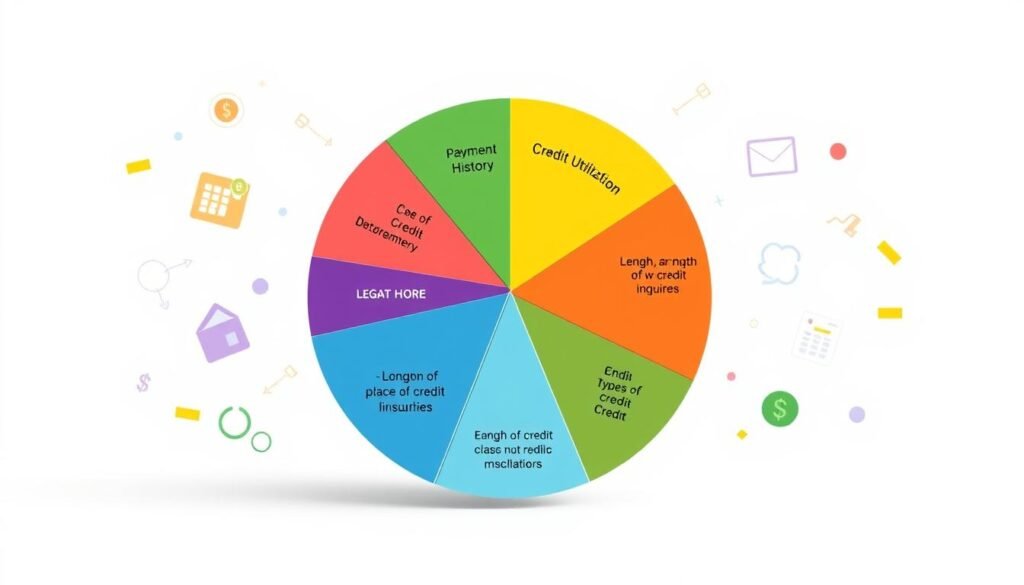
Amounts Owed
What you owe, including your credit use ratio, is 30% of your FICO® Score. It’s good to keep card balances under 25% of limits. Those with the best scores often have rates under 10%. Big balances can lower your score.
Credit History Length
The time you’ve had credit matters, making up 15% of your score. Older accounts show trustworthy credit use, helping your score. Keep old accounts open to use this to your advantage.
Credit Mix
Having different types of credit accounts for 10% of your FICO® Score. A mix of credit cards and loans, like house or car loans, demonstrates you can handle varied credit. This is beneficial for your score.
New Credit and Hard Inquiries
New credits and hard checks account for 10% of your FICO® Score. Too much credit sought quickly looks risky to lenders and might drop your score. A single inquiry could lower your score by under five points. Several inquiries have a bigger impact.
Impact of Paying Off Different Types of Debt
Paying off debt affects your credit score differently. Knowing these effects helps you manage money better and keep a good credit profile.
Revolving Accounts (Credit Cards)
Credit cards are major in figuring your credit usage percentage. They let you carry balances over, affecting your score based on how much credit you use. High balances mean a high ratio, which could lower your score.
Paying off credit card debt lowers your total debt. It also betters your credit usage ratio a lot. This can make your score go up. For example, using the avalanche method tackles high-interest debt first. Meanwhile, the snowball method takes on smaller debts to build momentum.
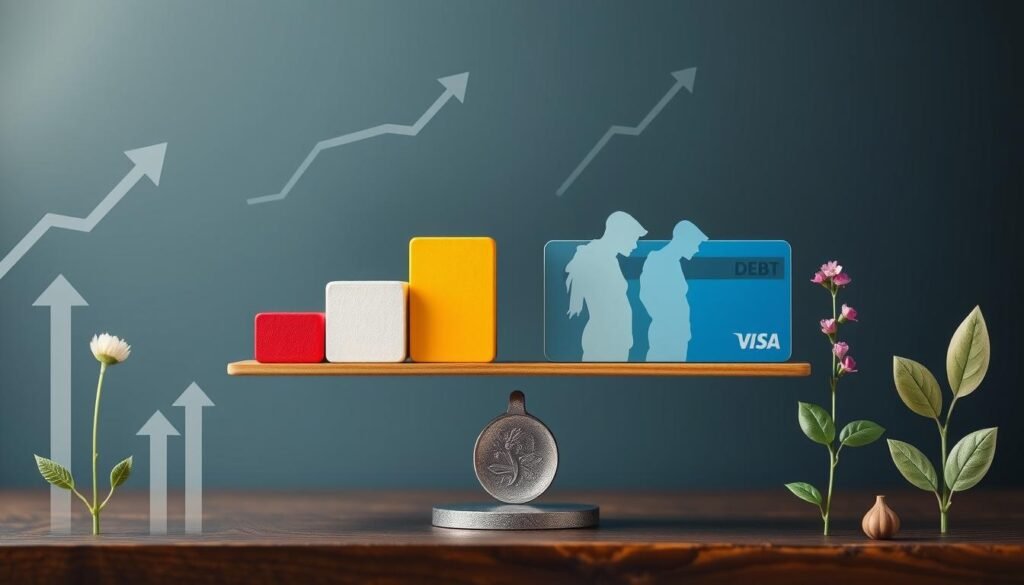
You might look into consolidating debt with balance transfer cards. They have low introductory rates to cut down interest costs. But, keep a low credit utilization for a stable score in the long run.
Installment Loans
Installment loans like mortgages and car loans are different. These have a fixed repayment plan. Paying off such a loan might not instantly hike your credit score. Yet, it does improve other financial areas.
Finishing an installment loan lowers your debt compared to income. This makes you more appealing to future lenders. It’s key for big financial plans like buying a house. Also, paying on time shows you’re creditworthy.
For managing credit and debt well, match your repayment strategy with your financial goals. Using the avalanche method on high-interest debts or tracking payments helps a lot.
Managing Your Credit Utilization Ratio
After clearing your debt, it’s key to manage credit to boost your score. Focus on your credit utilization ratio. This ratio is your total debt divided by total credit, shown as a percent. It’s huge for your credit score, making up 30% in the FICO® model.
The Importance of Keeping Accounts Open
It might seem good to close paid-off credit accounts. But actually, it’s better to keep them open. Closing an account increases your credit utilization ratio, hurting your score.
Lenders like to see a utilization ratio under 30%. The best scores often have ratios under 10%. Keeping accounts open increases your total available credit. This helps you manage your credit better.
Strategies to Maintain Low Credit Utilization
To keep your ratio low, spread balances across different accounts. Don’t max out any account, as it raises your ratio above 30%. Also, pay more than the minimum each month. This lowers your ratio faster.
You might also raise your credit limit or open a new card. A new account might briefly drop your score. Yet, a lower ratio in the long run is better.
For healthy finances, monitor your credit and use it wisely. Check your credit reports often. And try not to take on unneeded debt. These steps will boost your credit over time.

